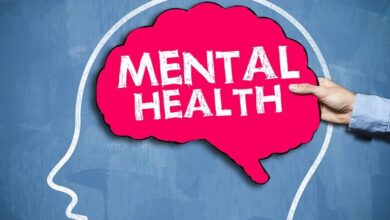Signs of Cocaine Addiction: How to Recognize the Warning Signs Early

Signs of Cocaine addiction should be monitored more carefully, as the stimulant poses major risks to one’s health. Cocaine is a strong and dangerously captivating narcotic that can change one’s brain permanently. This often leads to extreme psychological and physical dependence. Regardless of whether it’s a relative or a good friend, the first step towards assisting them live a more fulfilling life is understanding the warning signs.
We will begin with defining cocaine and identifying its most prevalent warning signs associated with addiction, as well as its use consequences on health and recovery plans.
What is Cocaine?
Cocaine is classified as a stimulus drug obtained from the coca plant and is taken for fun due to the heightened morale, energy, and alertness it can provide. These effects, however, are mostly temporary and taking them comes at significant risks of health issues later on.
Cocaine has a multitude of forms for ingestion, such as snorting a powder, injecting a dissolved version in water, or smoking it in the form of crack cocaine. No matter what method is applied, the likelihood of addiction is ever present, leading to a rapid dependence spiral.
Why Is Cocaine So Addictive?
Cocaine is considered to be quite addictive because of the way it works in the brain. Its use causes an intense rush for users and makes them yearn for more. Ultimately, the brain’s natural production of dopamine declines over time. Because of this, users become reliant on cocaine for their basic “normal” feelings.
This cycle of use followed by crash and craving results in quick addiction. In most cases, the person does not realize what has happened until it is too late.
Cocaine: Early Signs of Addiction
One of the most common ways to treat drug use and addiction is through early detection and intervention. Identifying these signs sooner will aid in faster intervention and better results. Here are some physical, behavioral, and mental signs of cocaine addiction:
1. Increase in Hyperactivity With Energy
During the onset stage of addiction, an individual may also feel extremely confident, talk to people a lot more than they used to, and even be more energetic. While they may see it as a harmless behavior at first, these signs of energy are often followed by severe depression and extreme crashes.
2. Frequent Sniffling, Along With Pupil Dilatation
Changes in a person’s appearance are also the result of cocaine addiction. Users who snort the cocaine often have red, runny noses, which lead to their pupils being dilated as well. Other strong signs include repetitive sniffing, which also leads to nosebleeds.3. Sudden Financial Issues
Funding a cocaine habit can lead to spending one’s entire budget, taking out loans, or selling physical assets. Such financial troubles, be it spontaneous or consistent, usually point toward a drug dependency.
4. Change in the Sleeping Schedule
Cocaine use is bound to affect sleeping patterns as well. Chronic users may engage in sleep cycles following very long periods of wakefulness and fatigue (bingeing).
5. Changes In Mood and Irritation
Bipolar tendencies, otherwise known as rapid altering between a euphoric and depressive state, is a common symptom of substance use. Sometimes, it could even escalate toward mood surges resulting in heightened irritability or physical violence. These mood changes are damaging to social interactions and are deeply concerning.
Signs Of Changing Behavior To Look For
Cocaine use over an extended period of time will systematically alter an individual’s behavior, some of which might be as follows:
Sshh… — Users tend to shut off friends, family, or social circles completely and isolate themselves.
Ignoring duties — Obligations including school or work can be neglected without a second thought.
Abandonment of hobbies – Pursuits, interests, and even critical life goals become secondary as the user puts his full focus on the drug.
Cocaine Abuse and Physical Health
As use increases, the following are likely to occur:
-Weight loss and malnutrition – Because cocaine abusers have a reduced appetite, weight loss becomes a huge possibility.
-Heart issues – There is a possibility of high blood pressure, heart beat racing, stroke as well as heart attack with the use of cocaine.
-Respiratory problems – This is common in crack smokers or snorters.
-Movement disorders– muscle tics or other repetitive and involuntary movements may also occur with cocaine users because of nervous system overexcitability.
Cocaine Addiction and Psychological Changes
Cocaine impacts mental health profoundly. Some of the most common are:
Because of the prolonged use, paranoia develops.
Anxiety and panic attacks – This is more so in the withdrawal or crash phase.
Psychotic depression – A sustained use generally leads to low dopamine levels and consequently psychotic depression.
Extreme hallucinations – Hallucinations literally means disconnect with reality.
Cocaine addiction does not only damage a person’s body but their entire life. Definite long term consequences can be:
Setbacks in social life – A lack of bonds or relations.
Career and academic failures – The addiction tends to disrupt work and school life severely.
Legal issues – Drug Possession, Theft, and Impaired Driving Offenses result in jail time.
Overdose – The combination of Cocaine with alcohol or opioids can lead to a life threatening overdose.
The Role of Denial in Addiction
Addicts suffering from cocaine addiction are likely to be in denial. They might think that they are in control of their addiction or can quit whenever they please. Such beliefs can lengthen the treatment and worsens the overall results.
Approaching a loved one with compassion rather than confrontation makes a difference. Tell them you are concerned, mention what has been observed, and encourage them to seek help without judgment.
How to Help Someone Showing Signs of Cocaine Addiction?
In case a friend or a family member shows signs of cocaine addiction, these are some steps to take:
Self-education – Increasing one’s knowledge concerning addiction and how recovery works is essential.
Start the conversation – The best approach would be to find an appropriate time, one that is relaxed, and define worries addressing someone’s behavior using “I” statements.
Avoid enabling – Quitting the covering-up behavior or shielding them from consequences is critical.
Encourage professional assistance – Providing medical detox, therapy, and long-term recovery plans, addiction treatment centers serve this purpose.
Be patient – Remember that recovery is a process that comes with ups and downs.
Treatment Options for Cocaine Addiction
Most effective treatment strategies incorporate one or more of the following elements:
Medical detox – Withdrawal symptoms are monitored and managed in a safe and controlled environment.
Inpatient or outpatient rehab – These are treatment programs that emphasize the multifaceted nature of addiction, addressing both the psychological and physiological components.
Cognitive Behavioral Therapy (CBT) – A therapy system aimed at recognizing and changing negative self-destructive behaviors.
Support groups- Such as Narcotics Anonymous, group therapy, or peer led support sessions.
Aftercare planning – Ongoing care to assist with sustained sobriety and prevention of relapse.
An example of one all-inclusive recovery program is Visalia Recovery Center which provides expert care, evidence-based therapy, and tailored ancillary services through the center’s compassionate arms.
Cocaine Addiction and Co-Occurring Disorders
Many people addicted to cocaine also have other mental health issues such as:
- Depression
- Anxiety disorder
- PTSD
Bipolar disorder
These co-occurring disorders require integrated treatment. A dual diagnosis approach ensures that the addiction and mental health issue is addressed and managed.
Breaking the Stigma
Sadly, a lot of people do not seek help because of their shame or the perceived judgment, stigma, or stereotype surrounding them. Resetting the narrative about addiction is crucial. An addiction, in this regard cocaine addiction, is a medical condition rather than a failure of morals or ethics. Like any sickness, it deserves care and compassion.
Conclusion!!
Cocaine addiction is highly damaging, but can be responded to appropriately. Knowing the indicators of cocaine addiction can help you assist yourself or someone you love. Early intervention, frank discussions, professional guidance, and support can foster recovery and a more satisfying life.
If you or a loved one grapples with cocaine addiction, do not hesitate to contact experts today at Visalia Recovery Center and begin the healing journey.




